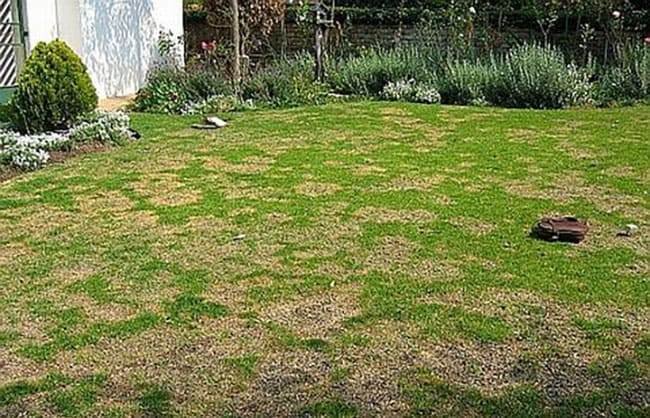Dog owners often wonder if baking soda will neutralize their dog’s urine on grass. Many owners are concerned that their pets will urinate in the garden, but there are some simple steps to prevent it.
One of these is to sprinkle baking soda on the area to neutralize the odor. Dog urine contains ammonia which makes it harder for plants to survive.
If the owner is able to notice the urine before it has had time to seep into the ground, there are a few ways to go about this task.
One way is to thoroughly soak the area with water and then spray generously with baking soda and then scrub it for about 30 seconds.
Also Read: How to Improve a German Shepherds Fitness & Avoid Weight Issues
Baking soda will counteract this by slowing down or stopping the production of ammonia in the soil. However, if urine is left on top of the grass for more than 24 hours, the baking soda should be reapplied.
Will baking soda neutralize dog urine on grass completely?
Dog owners often want to know if baking soda will help neutralize the odor completely left by their dog’s urine.
The answer is not always clear because it depends on which type of soil your grass is grown in, the amount of urine that has been sprayed, and how long it has been since the dog urinated.
If you are just looking to cover up the smell temporarily, then sprinkling baking soda may help refresh your lawn.
Best 5 Dog Urine Smell Neutralizers on Grass
Why Does Dog Urine Damage Grass?
Dog owners often wonder why their dog’s urine damages the grass and leaves the yard smelling like a wet dog.
This is not a coincidence: dogs instinctively mark their territory by urinating to drive other animals away and alert nearby males that they’re in heat.
During this process, dog urine contains natural enzymes that can “burn” or damage nearby plants that contact it – especially those such as grasses which are very sensitive to the acidity of the urine (most plant species).
The health of your lawn depends on many factors, but one of the most common causes of lawn damage is a dog’s urine.
Large amounts of nitrogen can be released in single urination which will cause the grass to become unhealthy and turn brown.
Why You Shouldn’t Put Baking Soda on Your Grass?
Many homeowners have thought of using baking soda as a way to kill pesky weeds in their grass or lawn, but is it really a good idea?
Baking soda can damage the soil by being absorbed by it and leaching important nutrients.
It also changes the pH of the soil increasing the chance of toxic levels of aluminum and manganese. In addition, baking soda can be more expensive than weed killers.

Baking soda is a substance that you pour onto the carpet or scrub into your clothes to eliminate odors and freshen them. You can also sprinkle it on your grass to kill the weeds, but doing so is a bad idea.
You don’t want to use baking soda on your grass because it is entirely ineffective.
Baking soda has the opposite effect of what you want it to do. It usually makes the grass more acidic which can cause browning and other problems.
Sprinkling baking soda on the top of your lawn will also make it crusty, which will discourage insects from wanting to eat it, or even walk on it for that matter.
How to Fix Grass Damage from Dog Urine

Dog urine can have a negative impact on any lawn it comes in contact with. As an owner, you have the responsibility to eliminate the problem before it causes extensive damage to the grass.
There are many different ways to fix this issue depending on your tolerance for extra work and maintenance.
In order to get rid of dog urine from your yard, there are a few steps you should follow:
- First, evaluate what type of grass you have.
- Second, remove the excess urine with a paper towel.
- Third, add one cup of hydrogen peroxide to three cups of water and pour it over the affected area.
- Fourth, add two tablespoons of baking soda to the same mixture and mix well.
Conclusion
It is advised that people keep baking soda on hand to neutralize dog urine on grass before it turns yellow and kills the grass.
Additionally, dog owners should be attentive to their pet’s behavior to avoid this issue altogether.
If you follow the above given quick tips, your yard will stay green and healthy!






